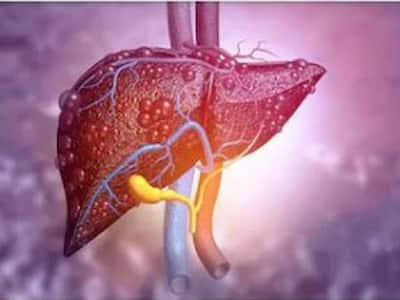
Know The Importance Of Testing For Hepatitis B Status By Dr Vivek Shetty.
World Hepatitis Day 2023: Hepatitis B causes inflammation, potentially leading to severe health complications, including liver cirrhosis and liver cancer. Hepatitis B is a primary global public health concern, affecting millions annually. Testing for hepatitis B status is paramount in preventing the spread of the disease, ensuring early detection and appropriate management, and safeguarding both individual and public health. Here, Dr Vivek Shetty, Consultant, Gastroenterology & Hepatobiliary Surgery, Jaslok Hospital & Research Centre, will explore the importance of testing for hepatitis B and the potential benefits it brings to individuals and communities.
Prevention And Transmission Control
Hepatitis B is primarily transmitted through infected blood, unprotected sexual activity, and from mother to child during childbirth by identifying virus carriers through testing and timely interventions. For instance, healthcare providers can administer vaccinations to susceptible individuals and provide education on preventive measures, such as using condoms or ensuring the safe disposal of sharp objects in healthcare settings.
Early Detection And Treatment
Hepatitis B is often referred to as a “silent killer” as many individuals may not display noticeable symptoms during the early stages of the infection. However, the virus can silently attack the liver, leading to chronic hepatitis B, cirrhosis, or liver cancer. Regular testing enables the early detection of the infection, allowing for the timely initiation of appropriate medical management and monitoring.
Facilitating Medical Decision-Making
Testing for hepatitis B status is essential for healthcare professionals to make informed medical decisions. Knowing a patient’s hepatitis B status can impact the choice of medications and medical procedures. It helps prevent the worsening of liver-related conditions and ensures the selection of suitable antiviral therapies tailored to the patient’s needs. Additionally, it allows for the close monitoring of liver function and the early detection of any treatment-related complications.
READ RELATED: 7 Tips To Sleep Better At Night
Ensuring Safe Medical Practices
For healthcare workers, knowing their hepatitis B status is vital to protect both themselves and their patients. Occupational exposure to infected blood can put healthcare providers at risk of contracting the virus. Regular testing of healthcare personnel helps identify those susceptible to hepatitis B and ensures appropriate preventive measures, including vaccination and adherence to universal precautions during medical procedures.
Promoting Public Health Initiatives
Regular testing and surveillance for hepatitis B reduce the burden of the disease. By monitoring the prevalence of hepatitis B in different populations, health authorities can effectively tailor prevention and intervention programs to target high-risk groups. These initiatives can include mass vaccination campaigns, educational programs, and awareness drives to curb transmission rates and improve community health.
Conclusion
Testing for hepatitis B status is a critical aspect of public health efforts to combat the spread of this viral infection. Early detection, prevention, and timely medical management are vital to reducing the disease burden on individuals and society. By promoting regular testing, we can create a healthier future where the prevalence of hepatitis B is minimized and affected individuals receive the necessary care and support to lead fulfilling lives. Embracing a proactive approach to testing for hepatitis B status can make a significant difference in the fight against this silent yet formidable global health challenge.
Total Wellness is now just a click away.
Follow us on
window.addEventListener(‘load’, (event) => {
// $(document).ready(function(){
$(‘#commentbtn’).on(“click”,function(){
(function(d, s, id) { var js, fjs = d.getElementsByTagName(s)[0]; if (d.getElementById(id)) return; js = d.createElement(s); js.id = id; js.src = “//connect.facebook.net/en_US/sdk.js#xfbml=1&version=v2.3”; fjs.parentNode.insertBefore(js, fjs);}(document, ‘script’, ‘facebook-jssdk’));
$(“.cmntbox”).toggle();
});
// });
});






